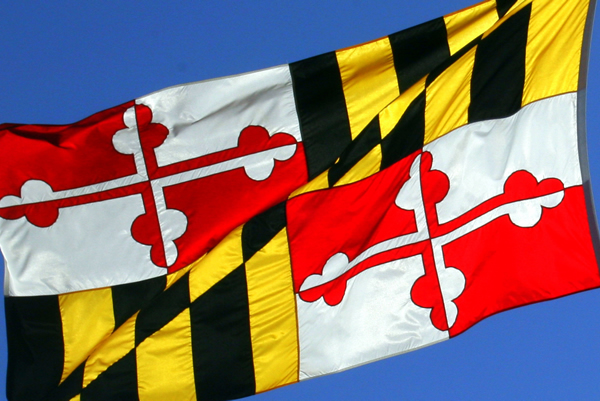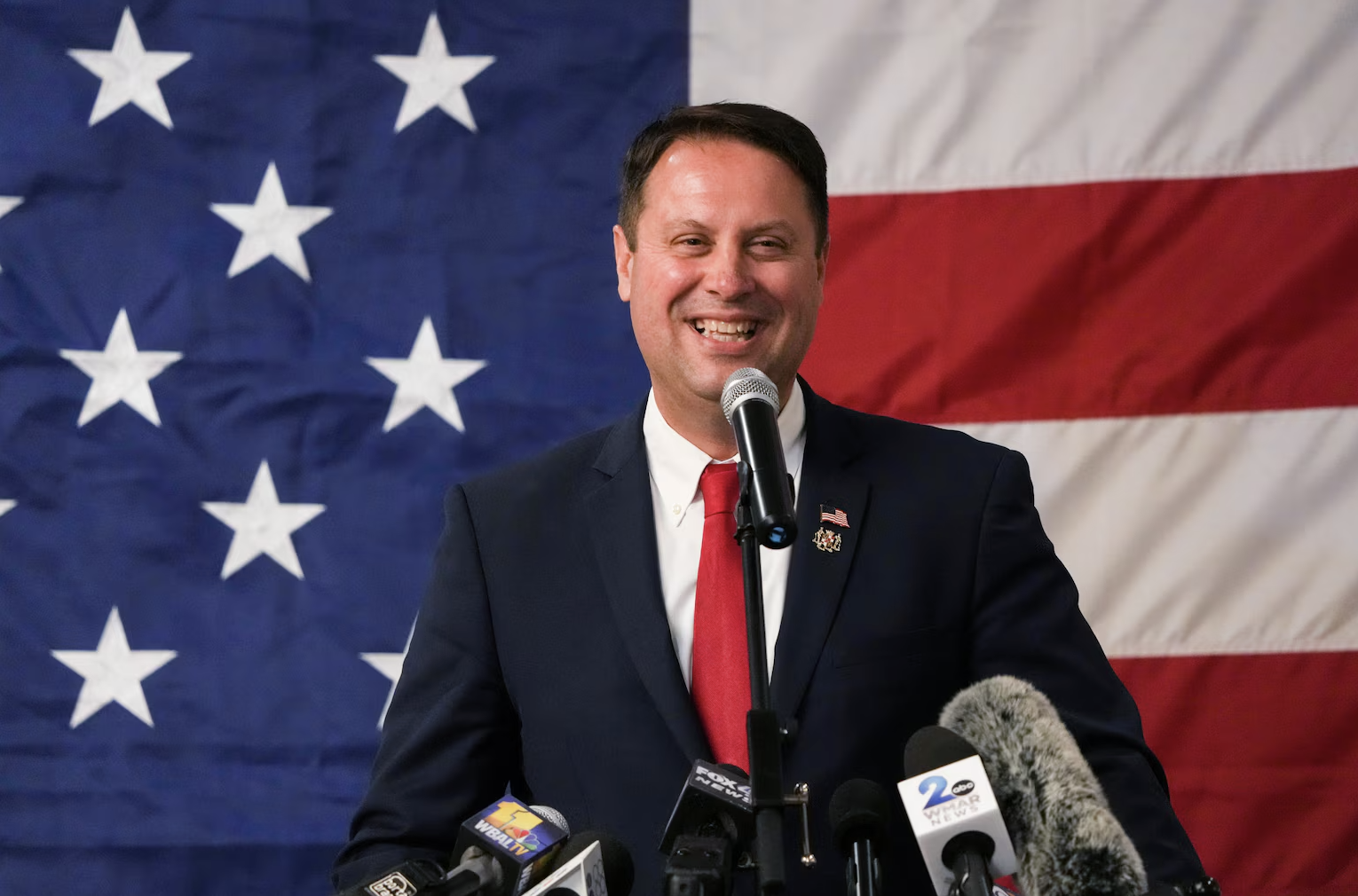Maryland
Transgender health care bill passes in Md. House committee
Trans Health Equity Act of 2022 passed by 14-8 vote margin

A bill that would require Maryland’s Medicaid program to provide coverage for gender-affirming treatment for transgender people passed in a Maryland House of Delegates committee on Friday.
The House Health and Government Operations Committee passed the Trans Health Equity Act of 2022 by a 14-8 vote margin. It will proceed to the House floor next week for consideration.
Legislators who sponsored the bill include state Sen. Mary Washington (D-Baltimore City), who believes that the committee vote is “a promising step in the right direction.”
“It’s been eight years since we passed legal protections outlawing discrimination against trans people in the areas of employment, housing, public accommodations and credit,” she said in an email statement to the Washington Blade. “We are one step closer to enhancing these basic economic civil rights with the passage of a bill that protects the public health and safety of all LGBTQ people.”
Washington also added that the bill will remove barriers within the Medicaid program to cover the full range of gender affirming treatment and procedures for low-income people.
According to the bill’s revised fiscal and policy note, Medicaid would be required to cover individual procedures that range from less than $800 for voice therapy to more than $25,000 for facial feminization or masculinization surgeries.
This would increase Medicaid expenditures by $52,743 for individuals who are transitioning from male to female and $52,493 for individuals who are transitioning from female to male. The bill would also increase the number of Medicaid enrollees seeking treatment to 25 people a year, according to the Maryland Department of Health.
Prior to the vote, the Blade spoke to activists who attended a rally on Thursday in Annapolis in support of the Trans Health Equity Act.
Trans Maryland, Annapolis Pride and Baltimore Safe Haven, among other advocacy groups, organized the rally.
“It was a beautiful expression of trans resilience and pride at a time when so many states are attacking trans rights,” said Sam Williamson, a Skadden Fellow for Homeless Persons Representation Project, which provides free legal services for low-income persons who are homeless or at risk of homelessness.
“This bill will save lives and bring Maryland Medicaid up-to-date with the leading medical standards for gender-affirming care,” they said.
Other activists also expressed faith in the bill’s future, given its prior success in the Senate.
“I feel good about it having passed the Senate, which is usually the more difficult chamber to get things out of,” said CP Hoffman, policy director at FreeState Justice, an organization that provides legal services and policy advocacy to trans individuals in the state.
Hoffman is also a practicing lawyer and member of the Maryland State Bar Association.
“Usually, I try to stay cautiously optimistic with all bills until they’ve passed every chamber,” they added.
Optimism among advocacy groups in the state isn’t blind.
Legal action will be imminent if Republican Gov. Larry Hogan doesn’t sign the bill into law.
“We are considering filing a complaint with the U.S. Department of Health and Human Services and bringing a federal discrimination action under Section 1557 of the Affordable Care Act,” said Hoffman.
FreeState Justice in the past has helped pass comprehensive non-discrimination state laws in favor of LGBTQ healthcare provisions.
In 2020, it helped overturn an archaic state law that prohibited nursing homes and hospitals from discriminating on the basis of race or national identity, but not sexuality. It also had health insurance non-discrimination rules, under the Affordable Care Act, written into state law so health insurers can’t discriminate on the basis of sexual orientation, gender identity, race, national origin and sex, among other identity markers.
Maryland
Md. Commission on LGBTQIA+ Affairs released updated student recommendations
LGBTQ students report higher rates of bullying, suicide

The Maryland Commission on LGBTQIA+ Affairs has released updated recommendations on how the state’s schools can support LGBTQ students.
The updated 16-page document outlines eight “actionable recommendations” for Maryland schools, supplemented with data and links to additional resources. The recommendations are:
- Developing and passing a uniform statewide and comprehensive policy aimed at protecting “transgender, nonbinary, and gender expansive students” against discrimination. The recommendation lists minimum requirements for the policy to address: name, pronoun usage, and restroom access.
- Requiring all educators to receive training about the specific needs of LGBTQ students, by trained facilitators. The training’s “core competencies” include instruction on terminology, data, and support for students.
- Implementing LGBTQ-inclusive curricula and preventing book bans. The report highlights a “comprehensive sexual education curriculum” as specifically important in the overall education curriculum. It also states the curriculum will “provide all students with life-saving information about how to protect themselves and others in sexual and romantic situations.”
- Establishing Gender Sexuality Alliances “at all schools and in all grade levels.” This recommendation includes measures on how to adequately establish effective GSAs, such as campaign advertising, and official state resources that outline how to establish and maintain a GSA.
- Providing resources to students’ family members and supporters. This recommendation proposes partnering with local education agencies to provide “culturally responsive, LGBTQIA+ affirming family engagement initiatives.”
- Collecting statewide data on LGBTQ youth. The data on Maryland’s LGBTQ youth population is sparse and non-exhaustive, and this recommendation seeks to collect information to inform policy and programming across the state for LGBTQ youth.
- Hiring a full-time team at the Maryland Department of Education that focuses on LGBTQ student achievement. These employees would have specific duties that include “advising on local and state, and federal policy” as well as developing the LGBTQ curriculum, and organizing the data and family resources.
- Promoting and ensuring awareness of the 2024 guidelines to support LGBTQ students.
The commission has 21 members, with elections every year, and open volunteer positions. It was created in 2021 and amended in 2023 to add more members.
The Governor’s Office of Communication says the commission’s goal is “to serve LGBTQIA+ Marylanders by galvanizing community voices, researching and addressing challenges, and advocating for policies to advance equity and inclusion.”
The commission is tasked with coming up with yearly recommendations. This year’s aim “to ensure that every child can learn in a safe, inclusive, and supportive environment.”
The Human Rights Campaign’s most recent report on LGBTQ youth revealed that 46.1 percent of LGBTQ youth felt unsafe in some school settings. Those numbers are higher for transgender students, with 54.9 percent of them saying they feel unsafe in school.
Maryland’s High School Youth Risk Behavior Survey reveals a disparity in mental health issues and concerns among students who identify as LGBTQ, compared to those who are heterosexual. LGBTQ students report higher rates of bullying, feelings of hopelessness, and suicidal thoughts. Nearly 36 percent of LGBTQ students report they have a suicide plan, and 26.7 percent of respondents say they have attempted to die by suicide.
The commission’s recommendations seek to combat the mental health crisis among the state’s LGBTQ students. They are also a call for local and state governments to work towards implementing them.
Maryland
4th Circuit dismisses lawsuit against Montgomery County schools’ pronoun policy
Substitute teacher Kimberly Polk challenged regulation in 2024

A federal appeals court has ruled Montgomery County Public Schools did not violate a substitute teacher’s constitutional rights when it required her to use students’ preferred pronouns in the classroom.
The 4th U.S. Circuit Court of Appeals in a 2-1 decision it released on Jan. 28 ruled against Kimberly Polk.
The policy states that “all students have the right to be referred to by their identified name and/or pronoun.”
“School staff members should address students by the name and pronoun corresponding to the gender identity that is consistently asserted at school,” it reads. “Students are not required to change their permanent student records as described in the next section (e.g., obtain a court-ordered name and/or new birth certificate) as a prerequisite to being addressed by the name and pronoun that corresponds to their identified name. To the extent possible, and consistent with these guidelines, school personnel will make efforts to maintain the confidentiality of the student’s transgender status.”
The Washington Post reported Polk, who became a substitute teacher in Montgomery County in 2021, in November 2022 requested a “religious accommodation, claiming that the policy went against her ‘sincerely held religious beliefs,’ which are ‘based on her understanding of her Christian religion and the Holy Bible.’”
U.S. District Judge Deborah Boardman in January 2025 dismissed Polk’s lawsuit that she filed in federal court in Beltsville. Polk appealed the decision to the 4th Circuit.

By PAMELA WOOD | Dan Cox, a Republican who was resoundingly defeated by Democratic Gov. Wes Moore four years ago, has filed to run for governor again this year.
Cox’s candidacy was posted on the Maryland elections board website Friday; he did not immediately respond to an interview request.
Cox listed Rob Krop as his running mate for lieutenant governor.
The rest of this article can be found on the Baltimore Banner’s website.

















